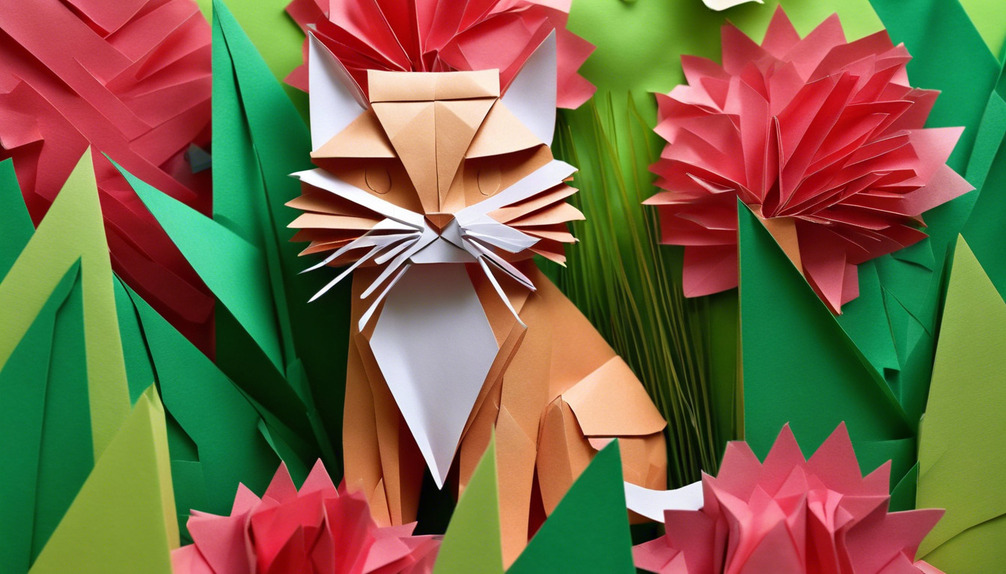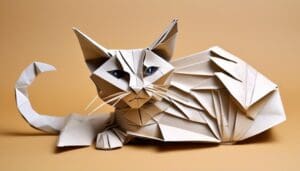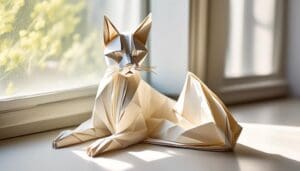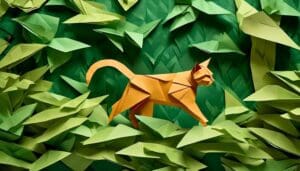Are you noticing changes in your aging cat’s weight and activity levels? As our cat grow older, maintaining a healthy weight becomes increasingly important for their overall well-being.
You want to ensure that they continue to lead a comfortable and active life, but how can you achieve this? With six simple yet impactful tips, you can help your aging cat avoid obesity and enjoy their golden years to the fullest.
These tips are not only practical but also considerate of your cat’s specific needs, making them a valuable resource for any cat owner looking to provide the best care for their faithful cat.
Key Takeaways
- Senior cats experience changes in metabolism and activity levels as they age, which can lead to weight gain if their diet isn’t adjusted accordingly.
- Obesity in cats can lead to health issues such as diabetes, arthritis, and heart problems.
- Prioritize nutritional value over cost and convenience when selecting senior cat food, and choose food that meets the specific nutritional needs of aging cats.
- Carefully manage portion control and meal times to maintain a healthy weight, and establish a routine to regulate eating habits and prevent overeating.
Understanding Senior Cat Dietary Needs
Understanding the dietary needs of your aging cat is crucial for ensuring their health and vitality as they enter their senior years. Senior cats, just like humans, experience changes in metabolism and activity levels as they age. These changes can lead to weight gain if their diet isn’t adjusted accordingly. It’s essential to be mindful of their nutritional requirements and to provide them with a balanced diet that supports their aging bodies.
Obesity in cats can lead to various health issues, such as diabetes, arthritis, and heart problems, so it’s important to address any weight gain proactively.
As your cat enters their senior years, their dietary needs shift, and regular veterinary check-ups become even more crucial. Consulting with your veterinarian about the best diet for your senior cat can help in preventing obesity and maintaining their overall well-being.
Choosing High-Quality Senior Cat Food
When selecting high-quality senior cat food, it’s important to prioritize nutritional value over cost and convenience. Your aging cat’s well-being should be the top priority when choosing their food.
Here are some important points to consider:
- Nutritional Requirements: Look for senior cat food that meets the specific nutritional needs of aging cats. Essential nutrients such as protein, fatty acids, vitamins, and minerals are crucial for maintaining your cat’s health as they age.
- Weight Management: Consider a calorie-reduced senior cat food formula to support weight management and prevent obesity. This can help your cat maintain a healthy weight and reduce the risk of obesity-related health issues.
Choosing high-quality senior cat food is an essential part of ensuring your aging cat’s overall health and well-being. By prioritizing nutritional value and consulting with your veterinarian for recommendations, you can provide your senior cat with the best diet tailored to their specific needs. Your cat has been a loyal cat, and it’s important to serve them well in their aging years.
Managing Portion Control and Meal Times
To help your aging cat maintain a healthy weight and overall well-being, it’s important to carefully manage their portion control and meal times. As our cats age, their metabolism slows down, making it easier for them to gain weight. Watching your cat struggle with weight issues can be concerning, but by taking charge of their feeding schedule and portion sizes, you can make a significant impact on their health.
It’s crucial to be mindful of the amount of food you’re putting in your cat’s bowl. Obesity in aging cats can lead to various health problems, so measuring out the right portion size is essential. Establishing a routine for meal times can help regulate your cat’s eating habits and prevent overeating. While it may be tempting to give in to those pleading eyes, remember that maintaining a healthy weight is crucial for their well-being.
Engaging Senior Cats in Play and Exercise
As you continue to prioritize your aging cat’s health by managing their portion control and meal times, it’s important to also focus on engaging them in play and exercise to support their overall well-being.
Keeping your senior cat active and mentally stimulated is important in preventing health issues like obesity. Here are some practical tips to help you engage your senior cat in play and exercise:
- Schedule short play sessions throughout the day to keep your senior cat active and mentally stimulated. This helps prevent boredom and encourages physical activity, which is essential for maintaining a healthy weight.
- Invest in interactive toys such as feather toys, laser pointers, and puzzle feeders to encourage your senior cat to move and play. These toys stimulate your cat’s natural hunting instincts and provide both physical and mental exercise.
Incorporating Senior Cat Weight Monitoring
It’s important to keep a close eye on your senior cat’s weight as they age. Regular weight checks can help you track any changes and make necessary adjustments to their diet.
Regular Weight Checks
Regularly monitor your senior cat’s weight and body condition through scheduled weight checks with your veterinarian to ensure their health and well-being as they age.
It’s essential to keep track of any weight changes over time to identify potential issues early on.
Use a consistent method of weighing your cat, such as a baby scale or a digital scale, for accurate measurements.
By doing so, you can adjust your cat’s diet and exercise routine based on the results of regular weigh-ins, preventing them from becoming overweight.
Remember, your cat’s well-being is in your hands, and seeking veterinary guidance if you notice significant weight changes in your senior cat is crucial.
Your proactive approach can make a significant difference in your cat’s health and happiness.
Dietary Adjustments
Monitoring your senior cat’s weight is crucial for making dietary adjustments to support their health and well-being as they age. Regular weight checks help detect any changes early on, allowing you to consult with your veterinarian and determine the appropriate diet for your cat’s specific weight management needs.
Making gradual adjustments to their diet based on weight changes and vet recommendations is essential. Consider incorporating a calorie-reduced diet to assist in managing your senior cat’s weight. It’s important to ensure that their diet supports weight maintenance and overall health as they age.
Implementing Routine Senior Cat Wellness Checks
When caring for your senior cat, prioritize their well-being by scheduling regular veterinary wellness exams to monitor their overall health and detect any potential issues early on. As your beloved cat ages, their health needs may change, making routine senior cat wellness checks crucial for their well-being.
Here’s what you can do to ensure your senior cat receives the best possible care:
- Discuss Specific Wellness Check-ups: Talk to your veterinarian about tailored wellness check-ups for senior cats, including blood work, dental exams, and weight management. Your vet can provide valuable insights into addressing potential health problems before they escalate.
- Ask About Dietary Adjustments: Inquire about any dietary changes that may benefit your senior cat in relation to cat obesity and age-related health problems. Your veterinarian can offer expert advice on adjusting their diet to promote a healthy weight and overall well-being.
Frequently Asked Questions
How Can I Prevent My Cat From Being Obese?
To prevent your cat from being obese, focus on portion control and scheduled meal times, using interactive feeding toys to encourage activity. Regular weigh-ins and body condition assessments help manage weight, while limiting treats and promoting exercise through play are essential.
How Do You Slim Down an Obese Cat?
You slim down an obese cat by gradually reducing their food intake, cutting down on treats, and encouraging exercise. Consult a vet for guidance on a safe and effective weight loss plan tailored to your cat’s needs.
Why Is My Elderly Cat so Fat?
Your elderly cat may be gaining weight due to reduced activity, indoor living, and excessive calorie consumption. Changes in metabolism and hormone levels can also contribute. Consult your vet for personalized dietary and exercise plans.
What Do You Feed an Underweight Senior Cat?
If your senior cat is underweight, try feeding them high-calorie, nutrient-dense food. Consider a mix of wet and dry food to increase calorie intake. Consult your vet for recommendations tailored to your cat’s specific needs.




